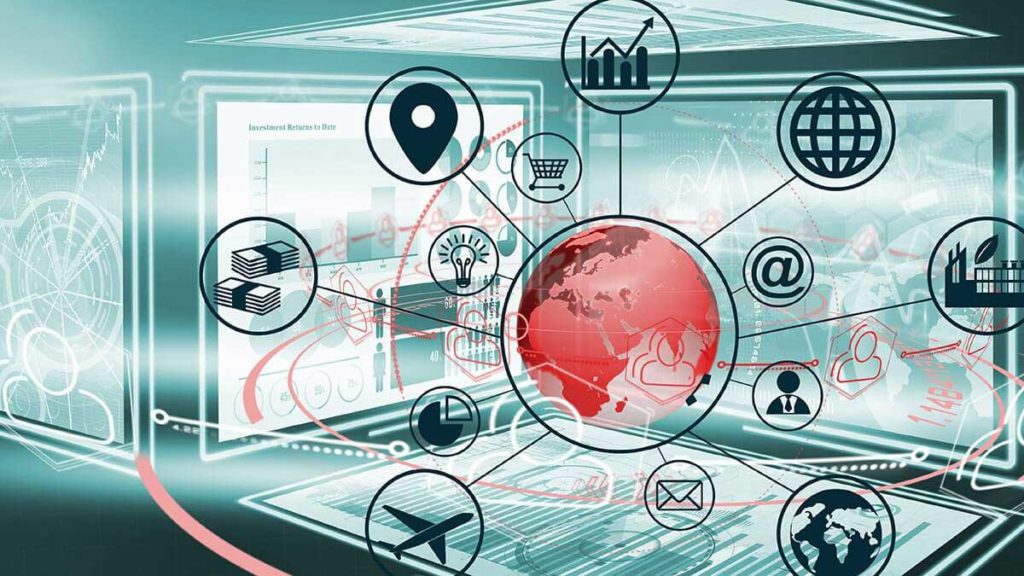
The COVID-19 pandemic has disrupted commerce and, in some cases, stopped the world in its tracks—as a result, nearly every industry is re-evaluating the way it operates. For some businesses, changes to tech systems and operations will be more dramatic than others, and it’s important to be prepared if your company is facing a major post-pandemic shift.
To help business leaders get ahead, we listed which industry functions the COVID-19 crisis has exposed as being in need of massive tech renovations.
1. Medical R&D
Advanced risk modeling, early warning, testing and detection, tracing, and vaccine development have all demonstrated the need for improvement lately. There is an urgency for refinement and acceleration in order to usher in technological innovation in healthcare—mainly, advancements in machine learning and artificial intelligence. Top institutions pushing the envelope, like the Vector Institute, Max Planck Institute, etc., will be ones to watch in this space.
2. Big Data Analytics
Every day we witness conflicting COVID-19 reports issued from sources around the world. Often, only a small amount of relevant data is analyzed due to constraints in both time and performance. Regardless of if we are talking about a healthcare or government institution, it is vital for them to be able to rapidly analyze their big data stores for the most important insights that could save lives.
3. Healthcare Data Management
Coming from the perspective of a cybersecurity and technology incident-handling background, Data in healthcare is one of the most urgent cases for immediate improvement. After we get through this crisis, we need to see a standard data format for medical testing with data feeds to state health departments’ databases at a minimum.
4. Cybersecurity and Digital Privacy
One of the area’s most in need of advancement during these times are cybersecurity and digital privacy. The pandemic has shifted the paradigm of the digital world, placing more dependence on technology than ever before. The need to protect this newfound dependence should take precedence.
5. Restaurant Services
This crisis is having a profound impact on the restaurant industry. Operators need to re-envision the experience, creating one affiliated to new guest concerns and expectations. Using a combination of mobile technologies, location-based services, virtual kiosks and dynamic delivery solutions, successful operators will embrace tech approaches that make a more “contact-free” experience possible.
6. Telecommunications
COVID-19 has put enormous pressure on mobile carriers to support the additional network traffic caused by millions of Americans working remotely and their children taking online courses to cope with the situation. The congestion has spread to affect critical infrastructure that relies on wireless connectivity, including public safety networks that first responders rely on to communicate during a crisis.
7. Digital Banking
With people everywhere required to avoid nonessential contact, digital banking is really the only choice. The financial services industry is working hard to modernize digital services to serve customers and keep businesses going. Banks have the opportunity to capture new customers by modernizing their remote account-opening processes to protect against new types of fraud.
8. Smart Infrastructure
Almost every industry sector is evolving to include more real-time data from sensors—most are being communicated wirelessly, and most require real-time analysis. Moving the computing resources closer to the sensor sources, is essential for every area and is an essential aspect of infrastructure that needs investment and development now to ensure the functionality we will demand.
9. Mobile Device Management
In recent weeks, many organizations suddenly faced the need for remote mobility management. Many firms had to drive remote, secure updates to mobile assets to achieve mission-critical use cases like telehealth or e-learning. A mature mobile infrastructure to update devices and apps in real time matters today, and it will still matter when public health conditions stabilize.
10. Technology in Education
While so many things are progressing with online learning, the latest crisis has highlighted the digital divide that still exists. Not every child around the world has access to the internet and a computer or mobile device to tap into online education. We need to change this now. – Jon Bradshaw, Appointment.